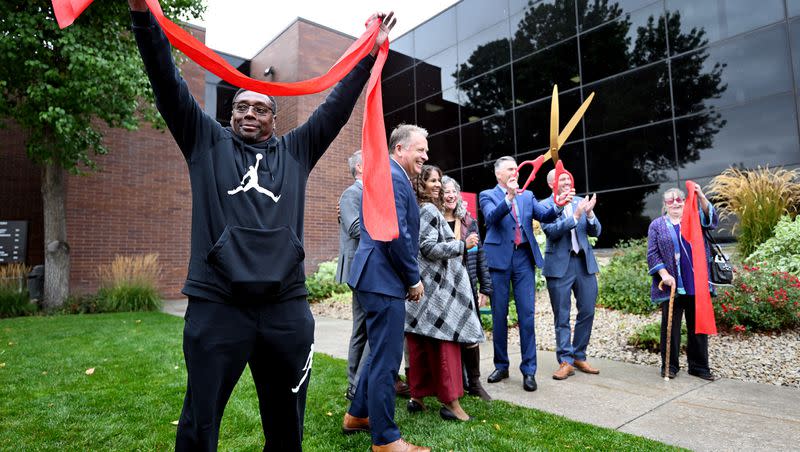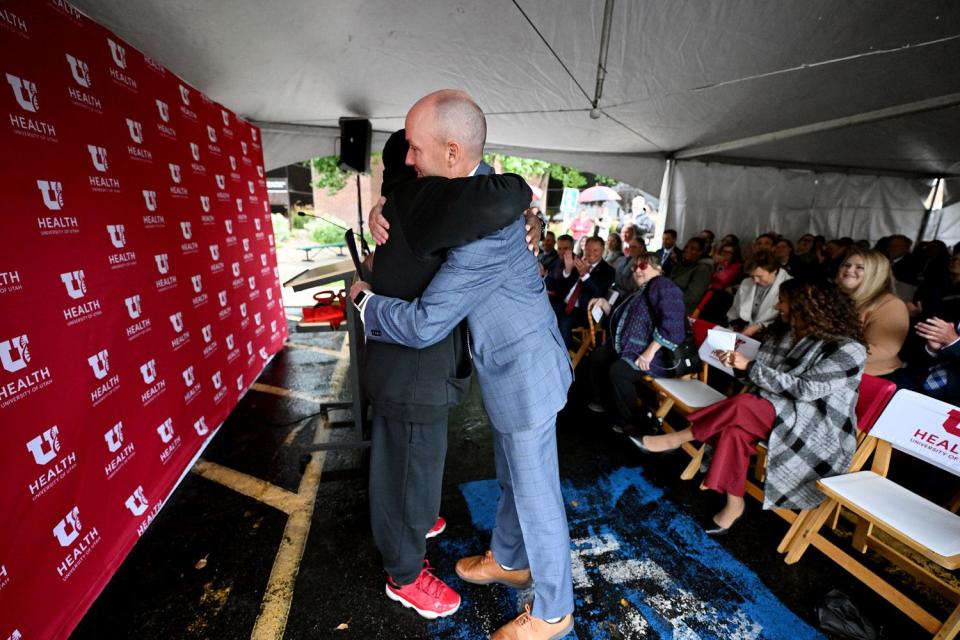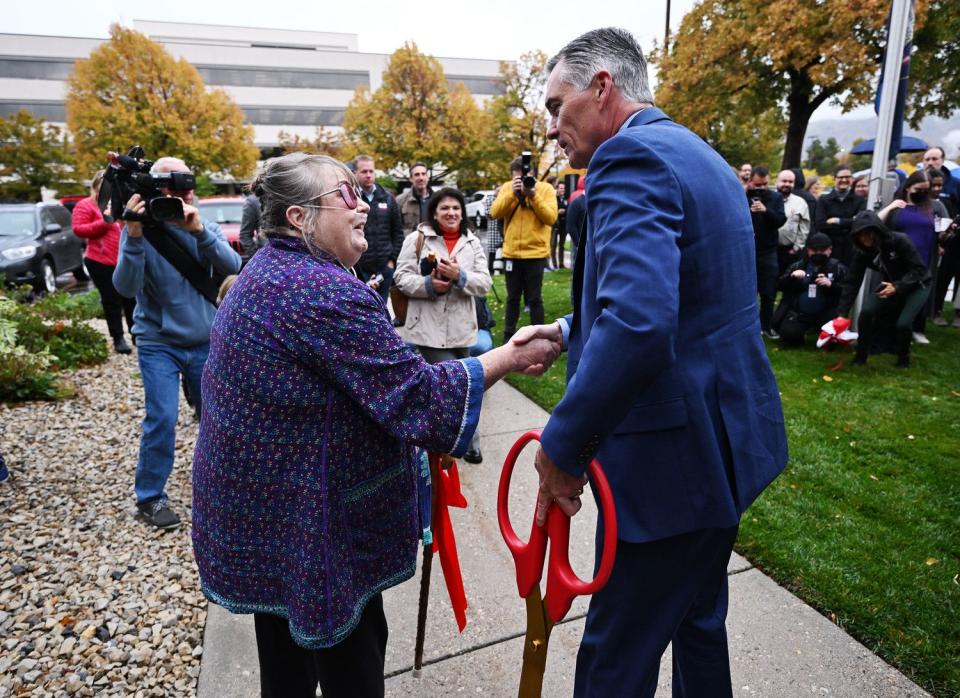U. Health Population Health Center provides holistic care, and is a model for the state and nation

- Oops!Something went wrong.Please try again later.
An existing health clinic aims to make a "fundamental change" in how it cares for patients as it expands to do more, University of Utah Health CEO Dr. Michael Good said.
The Rose Park Population Health Center will continue providing primary care and behavioral care to its 2,000 patients, but also expand the clinic's intensive outpatient clinic, add a student-led clinic and provide refugee health services. The care, Good said, is centered on the patient and tailored to their needs, and paired with an effort to reduce costs.
"Population health is an example of what health care should be. Simply put, we provide better care at lower costs for members of our community," Good said during a ribbon-cutting held Thursday for the U. Health-led expansion of the Rose Park clinic, which was previously run by the Utah Department of Health and Human Services. "This is Utah at its best."
Adolphus Nickelberry, a patient at the clinic, said he was in and out of custody years ago and, now, because of the intensive outpatient clinic, he was speaking at a ribbon-cutting alongside Gov. Spencer Cox. He became a patient in 2017 and said he didn't want to hear advice from providers at the clinic at that point, but they didn't give up — they kept calling.
"They have brought me a long way," he said.
Nickleberry said the clinic kept him going and helped him want to be present for his family. He said he wants to work at the clinic someday, and he's now doing what he is supposed do with his life.

Cox hugged Nickelberry as he returned to his seat. The governor said hearing from patients about how their lives have changed is rewarding.
"That shows us that it's actually working and again, it's a model — not just for the rest of the state but for the rest of the country," Cox said.
Taylor Randall, University of Utah president, said the university asked U. Health to help it become a top 10 public university "with unsurpassed societal impact," and this health center is one of multiple initiatives that have helped the university move toward that goal.
He said the community is breaking down barriers and solving problems.
"Utah runs at hard problems, not away from them — and that is important," he said.
Cox said the U. has incredible minds and was the "most untapped resource" in the state — but he said Randall's vision for the university exceeded his own.
"Knowledge means nothing, if it doesn't benefit the lives of the people around it. Knowledge for the sake of knowledge is not worthless, but close to worthless. Knowledge in action is power, and changing people's lives — and the people who needed the most. And that's what we're here to celebrate today," he said.
The unique partnership between the One Utah Health Collaborative, a state initiative with a goal to find ways to reduce costs and provide better access to health care, and the new U. Health population health center has created something that has never been done before.
"The future of health care in our state is bright, especially for those who need it the most and are least able to obtain it. We're proud of what you're doing," Cox said.
He said the holistic health care provided at the clinic moves beyond traditional health care. He said health care alone does not improve health, but people need access to food, dental care and mental health care.
Gina Hawley, COO of U. Health hospitals and clinics, said that the population health center is a new way of caring for communities. It can treat symptoms as well as underlying problems. She said clinical teams understand their patients' lives, including physical and mental health and access to food, housing and transportation.
"We're looking forward to building a healthier and happier population and a brighter future for Rose Park and Utah together," Hawley said.

Kat Firzlaff, another patient, said at one point in her life she did not think she would make it to see her grandkids grow up, and she was in extreme pain and her time went to caring for her health.
"I felt like I'd lost everything or was losing everything," she said.
But a few days ago, she was able to go for a walk with her grandchildren, and then play with them. She said that is a miracle the clinic has given her.
Firzlaff said she was reluctant to switch to the intensive outpatient clinic for her primary care, but she said there was a "profound change" from her first visit. She said they are never in a hurry, they listen to her and suggest resources.
"They've taken the time and the care to really see me and all the little pieces that make up the whole of me," she said.
Ultimately, Firzlaff said she said the clinic has saved her life multiple times because she has felt comfortable to ask questions.
"I feel like nothing is falling through the cracks now; none of the pieces are forgotten or overlooked, because they see they whole. They're really looking at me and they know me," she said.

